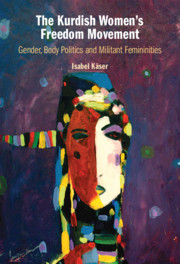2 results

The Kurdish Women's Freedom Movement
- Gender, Body Politics and Militant Femininities
-
- Published online:
- 13 August 2021
- Print publication:
- 26 August 2021
Comparative Analysis of Traumatic Deaths in Nigeria
-
- Journal:
- Prehospital and Disaster Medicine / Volume 20 / Issue 3 / June 2005
- Published online by Cambridge University Press:
- 28 June 2012, pp. 197-201
- Print publication:
- June 2005
-
- Article
- Export citation

